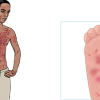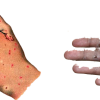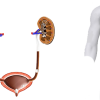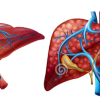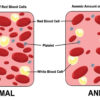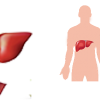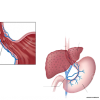Tag: blood , dark urine , hematology , hepatology , itching , liver , pale stool , yellow eyes , yellow skin
-
Blood Cancer (Leukemia)
Introduction Blood cancer encompasses cancers that originate in the bone marrow (organ that produces blood cells). Most of the blood cancers involve white blood cells (cells that fight infection) and are called leukemia. Cancers can also develop in the red blood cells (cells that carry oxygen) and p
-
Excess Urination
Excess urination can be frequent urination (with normal total urine output) or urinating abnormally large volume of urine (usually more than 3 liter/24 hours in adults) called polyuria. It is a common problem in men and women of all ages but more common in middle age or older indiv
-
Skin Rash
Skin rash is any change in color or texture of the skin. This happens due to wide variety of conditions, some are limited to skin while others affect mucous membrane or internal organs. So skin rash may be mild illness or a very serious condition. Causes of Ras
-
Viral Exanthems
Exanthem means skin rash or eruptions. Viral exanthems are skin rashes that develops in response to an infection from a virus. Viral exanthems are common in children. They usually appear abruptly and are preceded by fever, cough and malaise. There is a relationship between the
-
Vomiting of blood (Hematemesis)
Hematemesis refers to the presence of blood in your vomit or vomiting of pure blood that originates in upper part of your gastrointestinal tract. It needs to be differentiated from spitting blood mixed saliva which arises from teeth, mouth and throat. It also need to be differentiated
-
Scabies
Scabies is a highly contagious parasitic skin infection caused by the itch mite Sarcoptes scabiei. It mainly spreads by prolonged direct skin to skin contact with infested person. Sometimes sharing articles like towels, bed or clothing may spread it. Incubation period (time
-
Ringworm
Ringworm (Tinea) is a contagious infection of the superficial layer of the skin caused by a fungus. Common fungus that cause ringworm are Trichophyton and Microsporum species. The name ringworm comes from the appearance of the lesion which is a red, advancing circular lesion with clearer skin in the center. T
-
Malaria
Malaria is a febrile, mosquito-borne disease caused by parasitic protozoa, Plasmodium. Four different species of Plasmodium cause malaria. The parasite is transmitted by bite of female Anopheles mosquito. It occurs mostly in high temperature areas - tropical regions and the Terai belt of Nepal. Infected female Anoph
-
Kidney (Urinary) Stone
Urinary stones are formed anywhere in the kidneys, the tubes draining urine (ureters) or the urinary bladder. These are formed from the accumulation of substances like calcium, oxalate, cystine, or uric acid which are present in urine. If thes
-
Cirrhosis of Liver
Liver cirrhosis is a chronic slowly progressive condition where normal liver tissue is replaced by scar tissue. The scar tissue is the final result of injuries to the liver by various substances. The destruction of normal liver tissue leads to reduced synthesis of proteins needed for the
-
Anemia
Anemia Anemia is a condition where your hemoglobin level is low. Hemoglobin is the substance found in the red blood cell that carries oxygen in the blood. When you are anemic the oxygen carrying capacity of you blood in reduced and it may not be enough to meet the dem
-
Hepatitis
Hepatitis is an inflammation of the liver. Liver is one of vital organs and largest internal solid organ. Liver has large blood supply and functions as a chemical factory removing many unwanted substances from the body. This exposes liver to many insults including infections, drugs or
-
Esophageal Varices
Esophageal varices are abnormally swollen veins in the lining of the lower esophagus. Most of the time, esophageal varices develop due to obstruction in the portal venous circulation (blood flow through the liver) but mainly it occurs when a healt
-
Jaundice
Jaundice is a condition in which your skin and eyes turn yellow due to high levels of bilirubin in the blood. Bilirubin is a yellow pigment that is normally produced in our body when old red blood cells die. These pigments are then metabolised by the liver and excreted into the intesti




